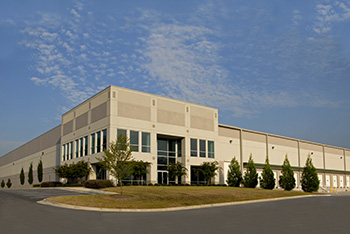It is amazing how many companies don’t look at vendor's order management system license agreements very closely. These are binding legal documents and without close review of payment terms, deliverables, schedules, termination options, etc. you could be putting your company at risk for losing thousands (or hundreds of thousands) of dollars.
very closely. These are binding legal documents and without close review of payment terms, deliverables, schedules, termination options, etc. you could be putting your company at risk for losing thousands (or hundreds of thousands) of dollars.
There are two major aspects to these license agreements:
- The business case aspects involved with the project planning with milestones, modifications, training, conversion, conference room pilot testing, payment terms, etc. A consultant can help your team frame these out as you are negotiating with the vendor.
- The legal and intellectual property (IP) aspects of the agreements; governing jurisdiction; issue resolution, termination, etc. We highly recommend using a lawyer that is well-versed with IP and specifically system vendor contracts.
You need to protect yourself and your company’s interest so take some time to review and enlist the assistance of an IP attorney who can look out for your company’s best interests. Don’t rush into signing an agreement without this thorough review, just because the vendor is giving you a “discount” that expires in a short period of time. Remember that to get to a fair agreement for both parties it will take some time and negotiation. DISCLAIMER: This blog post only identifies 7 important order management system contract essentials you will encounter in software agreements and should not be taken as legal advice.
1. Request For Proposal
As part of your software selection process you probably submitted a request for proposal (RFP) with all of your detailed requirements. From these vendor responses to the RFP and other due diligence you performed to make your selection. The selected vendor’s response to your RFP should become an addendum to the vendor’s agreement.
2. Agreement Terms
Most software vendor license agreement terms are very favorable towards the vendor. Most vendors would like you to sign the agreement then work on the details of defining the implementation schedule and costs, modifications, training, etc. Once you sign the agreement you are bound by the terms, regardless of what the vendor may have told you verbally. All terms that you negotiate need to be written into the agreement, since verbal guarantees are not enforceable.
3. Payment Schedule
One of the most important aspects to the order management system license is the payment schedule; how much and when. You don’t want to pay for everything before the system is installed, your staff is trained, you have converted from your existing system and/or before you have successfully tested and balanced the system and all interfaces to other applications and/or service bureaus before the “Go-Live” date.
Be sure these payment terms are realistic and spelled out with specific milestones. Vendors often want 50% of the license upfront with 100% before “Go Live” and a major deposit on the Professional Services Fees at signing. A schedule that represents good faith and payment for milestone delivery is best but is becoming very difficult to negotiate with some vendors. The point here is you want some leverage should there be any issues along the way to your successful implementation of the software.
4. Software License Agreement
The software license agreement will define the terms of the payment schedule, delivery schedule, warranties and remedies, limitation of liability, software maintenance, termination rights, dispute resolution, indemnification, insurance coverage the vendor is required to maintain, and software escrow among other items that may be specifically related to the vendor’s software.
Some vendors will ask you to sign the license agreement and work out the details later. The problem is that you have obligated your company to a large deposit which is not refundable before you have worked through all the other details and documents.
5. Software Maintenance Agreement
The software maintenance agreement will define the hours of coverage and the quickness of the response to a systemic issue. Some vendors have different levels of software maintenance; bronze, silver and gold for example. What these different levels of service provide to you vary by vendors. It may include more support hours per month, extended hours to call and speak to a support person directly, a given number of floating hours to be used for issues or put towards enhancements, etc. Before arbitrarily selecting a higher level, which obviously means additional costs, we recommend checking with the vendor references you contacted to evaluate the vendor and understand what level of service they have and why they chose it.
Additionally, the order management system maintenance agreement should spell out the frequency of software releases; major release and minor release fixes. Most vendors have gone to an annual major software release and quarterly maintenance or bug fix releases. One item to be cognizant of here is how many prior releases back the vendor will support the software before requiring you to upgrade to the current release/version. If you had modifications will these become part of the base application? If not it means that each time you perform an upgrade you will need to invest in these modifications being redone in the new version. This needs to be understood as you will need to plan time to test the new version and all of your interfaces and/or integrations to other software applications; including your website.
6. Professional Services Agreement
The largest single area of expense is the Professional Services agreement. This can be one to one and a half times the software license fees. The most important part of the professional services agreement is the Statement Of Work (SOW) and the deliverables; gap analysis/scoping session, modifications, training schedule, conversion, project management time allotted and the project plan of all tasks that need to be completed with dates for the desired targeted “Go-Live” date.
Also, this is the portion of the agreements that have the largest over-runs. The reason is that even though the vendor may have spent time on site in “selling” you, they have not done the detail surveys, scoping decisions, reviewed and agreed to the modifications that are necessary.
Additionally, the professional services agreement should include the compensation, expense reimbursement, terms of payment, warranties, indemnification, ownership of any software modification development, integration to other applications and limitation of liability. Based on each individual company, there may be additional items that get added to the professional agreement.

7. Intellectual Properties
Besides your review of all of these agreements and understanding of the terms and what is included, it is important for a lawyer who is familiar with intellectual property contracts to review these agreement details from the legality and liability standpoint of your company before they are signed. These agreements are legally binding and if you do not have an attorney on staff that is familiar with Intellectual Properties law we recommend that you have an attorney who is review these agreements.
In Summary
The purpose of these agreements and contracts is to protect both parties, and for your company to be able to defend an unforeseen incident that leads to a legal dispute. Proceed cautiously and allow enough time for a thorough review of order management system agreements and be sure everything is included that the sales person said would be included in the price. Be sure to seek the best possible payment terms for the software license and maintenance agreement and use a Pay For Performance standard on the professional services agreement.




SHARE